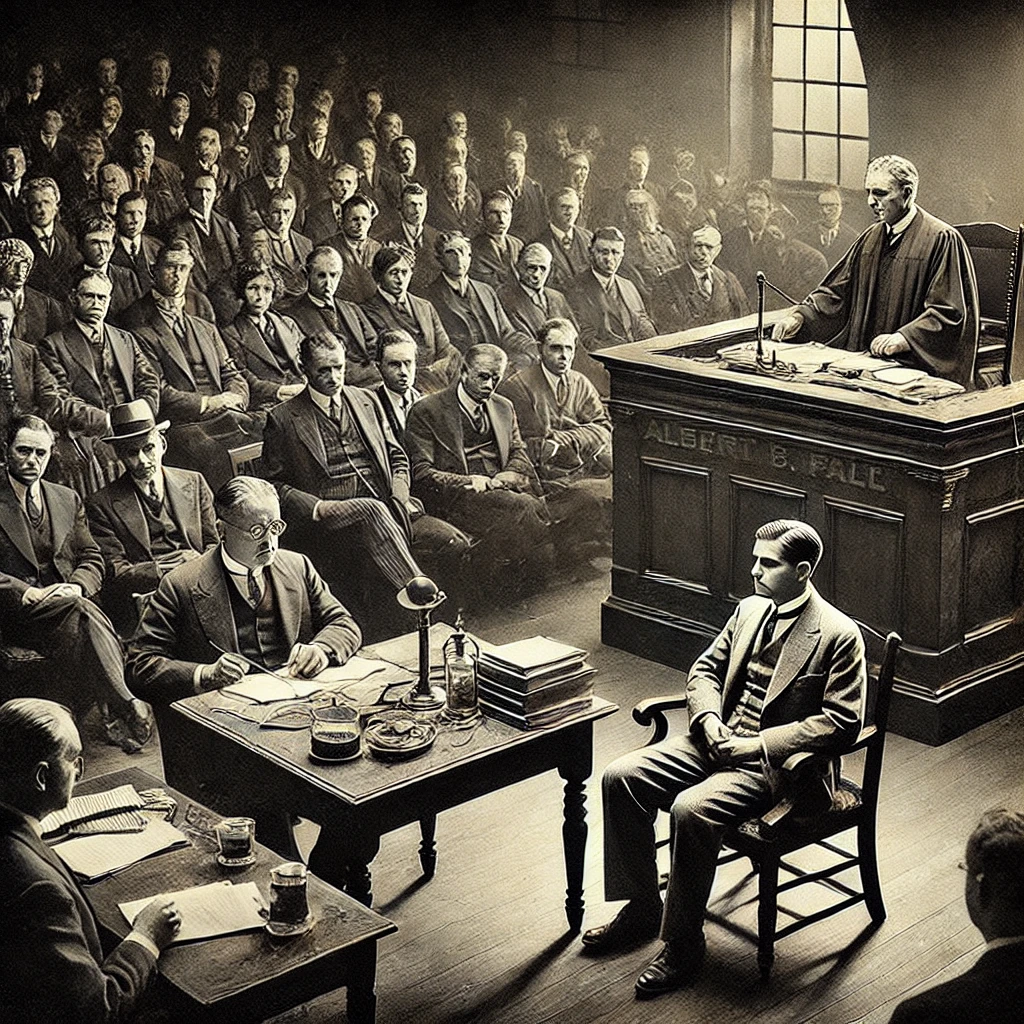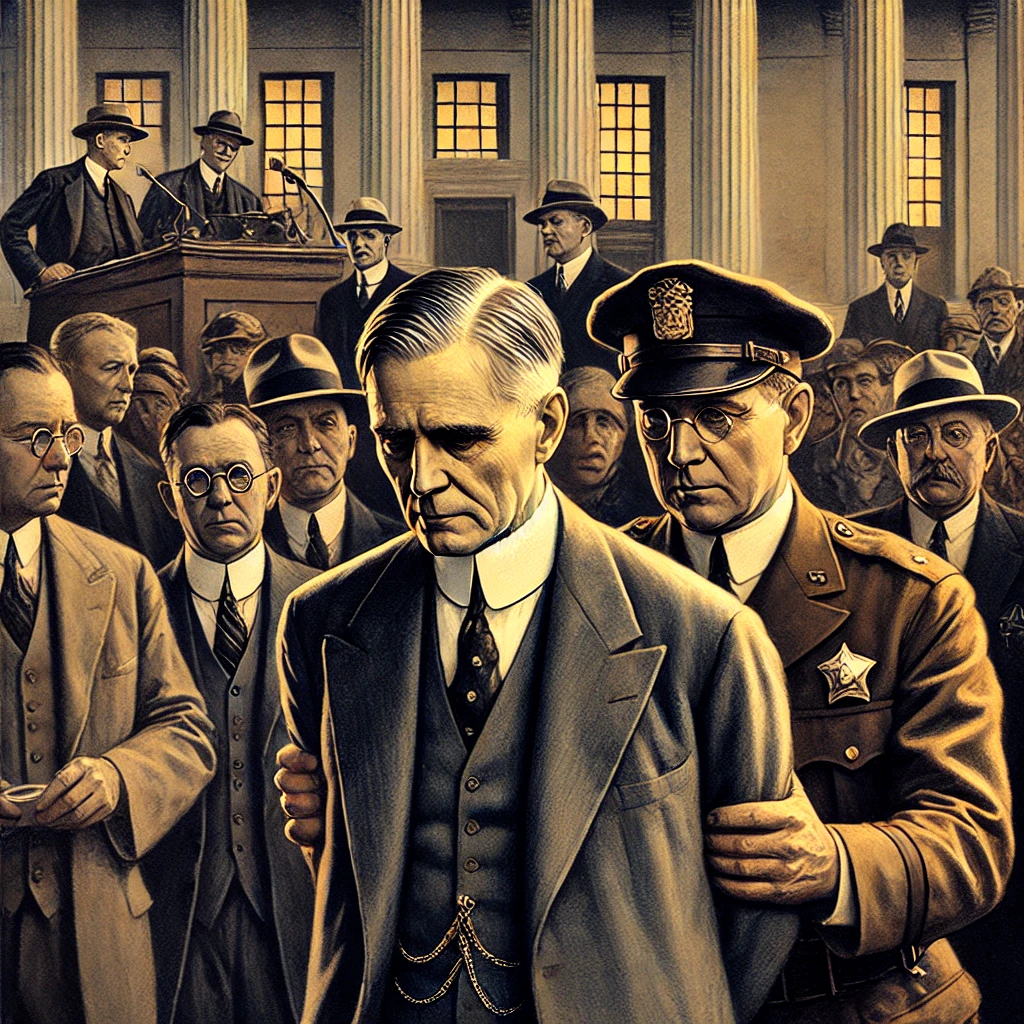On October 25, 1929, a significant chapter in American political history unfolded as Albert B. Fall, the former Secretary of the Interior, became the first cabinet member in U.S. history to be convicted of a crime while in office. This conviction stemmed from his involvement in the Teapot Dome scandal, a major political scandal that rocked the nation during the 1920s and highlighted issues of corruption, greed, and the interplay between government and big business.

The Background of the Teapot Dome Scandal
The Teapot Dome scandal took its name from a rocky area in Wyoming where a significant oil reserve was located. In the early 1920s, President Warren G. Harding’s administration sought to develop the nation’s oil resources to reduce dependence on foreign oil. In a controversial move, Harding transferred control of the naval oil reserves at Teapot Dome and Elk Hills, California, from the Navy to the Department of the Interior, where Fall served as secretary.
Fall, eager to exploit these reserves for personal gain, secretly leased the rights to the oil fields to private oil companies without competitive bidding. The most notable of these leases was granted to Harry F. Sinclair’s Mammoth Oil Company. The arrangement raised immediate suspicions, and investigations began to uncover the extent of the corruption. Allegations of bribery and unethical conduct soon emerged, leading to a full-scale inquiry into Fall’s actions.

The Investigation and Conviction
The scandal came to light through a series of investigations conducted by the Senate, which revealed extensive corruption within the Harding administration. Testimonies from various witnesses, including Fall’s associates and oil executives, painted a picture of bribery and backdoor dealings. Fall had received substantial kickbacks from the oil companies, with evidence indicating that he accepted bribes totaling more than $400,000—an enormous sum at the time.
As the investigation intensified, Fall’s actions were scrutinized by the press and public, leading to widespread outrage. In 1929, after being indicted on multiple charges, Fall was convicted of accepting bribes and was subsequently sentenced to one year in prison. His conviction marked a historic moment in American politics, serving as a warning against corruption and the dangers of unchecked power.
The Impact of the Teapot Dome Scandal
The Teapot Dome scandal had far-reaching implications for American politics and public trust in government. It exposed the vulnerability of the political system to corruption and the influence of corporate interests on government decision-making. The scandal eroded public confidence in the Harding administration, which was already marred by other controversies and scandals, leading to a broader sense of disillusionment with politics during the 1920s.

In response to the revelations of corruption, lawmakers sought to implement reforms aimed at increasing transparency and accountability in government dealings. The scandal prompted discussions about the need for stricter regulations on lobbying and campaign financing, issues that remain relevant in contemporary political discourse.
The Legacy of the Teapot Dome Scandal
The Teapot Dome scandal is often cited as a pivotal moment in American political history, highlighting the necessity for oversight and integrity in government. The case set a precedent for future investigations into political corruption and reinforced the idea that no one, regardless of their position, is above the law. Fall’s conviction served as a reminder of the potential consequences of unethical behavior in public office.
In the years since the scandal, the term “Teapot Dome” has become synonymous with political corruption, serving as a cautionary tale for future generations. The legacy of this scandal continues to resonate in discussions about ethics in politics, transparency, and the relationship between government and corporate interests.
The conviction of Albert B. Fall on October 25, 1929, for his role in the Teapot Dome scandal marked a significant moment in the annals of American political history. This scandal, characterized by bribery and corruption, not only exposed the vulnerabilities within the political system but also led to reforms aimed at promoting accountability in government. As we reflect on the events surrounding the Teapot Dome scandal, we recognize its lasting impact on American politics and the ongoing importance of vigilance in safeguarding democratic principles and ensuring ethical governance. The legacy of this scandal serves as a reminder of the enduring struggle against corruption and the vital role of transparency in maintaining public trust.
